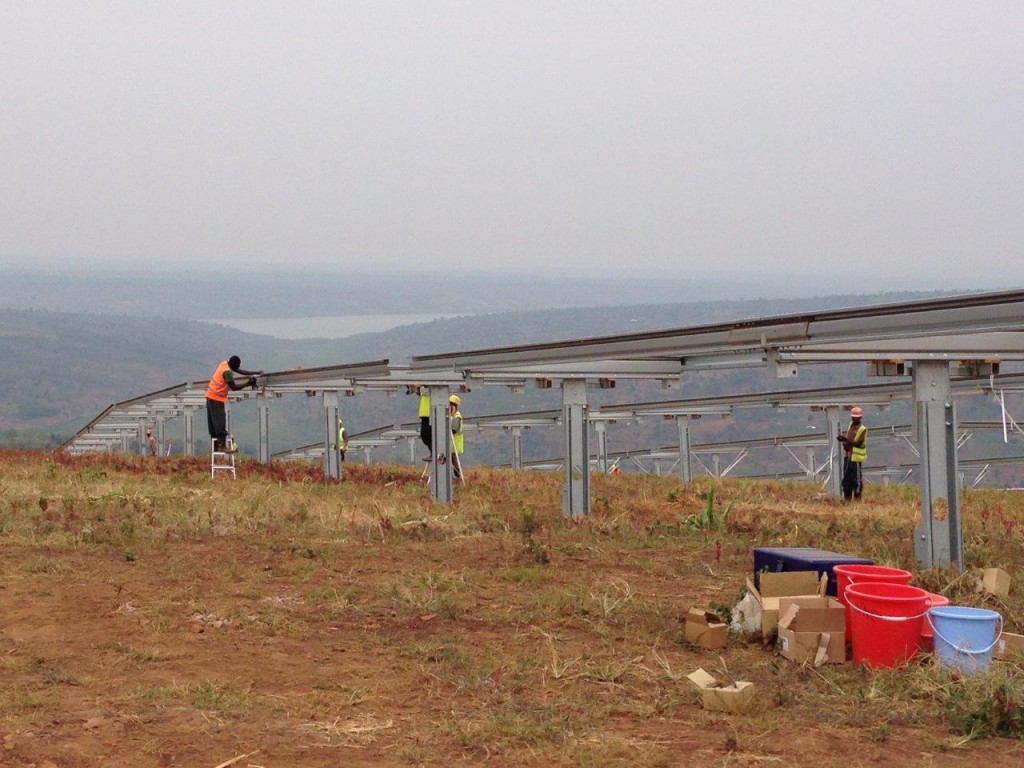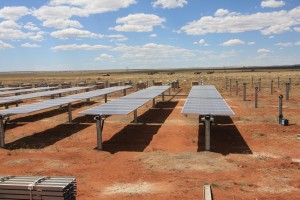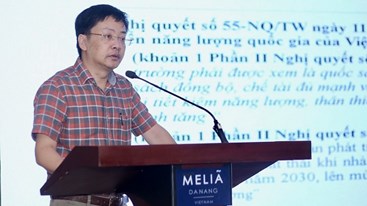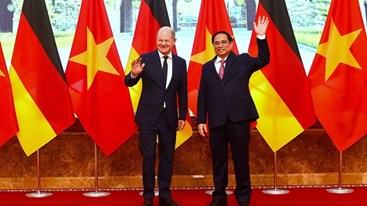Sunday, 06/10/2024 | 17:35 GMT+7
Imagine an expanse of land stretching from the Statue of Liberty to the Golden Gate Bridge in which most residents live their daily lives without a single watt of electricity.
Some 300 million Americans would travel home from work on darkened streets, read at night by the light of candles, think twice about the safety of their water and perhaps cook their meals over open fires. Many people would travel two hours each way just to reach someone with a generator who could charge a cell phone.
Now, imagine doubling that number of people and tripling the area of the contiguous United States.
That’s what Sub-Saharan Africa faces. Each day, more than 600 million Africans lack basic access to electricity, a harsh reality that takes a continuous toll on their health, education, safety and income.
The situation is all the more frustrating because governments and private companies in developed and developing nations know which technologies could meet this challenge. They can draw on time-tested business models. They have proven templates for legal contracts and power purchase agreements. Many of the necessary trade and investment incentive agreements are already being changed to attract this type of investment.

Yet too often private developers need relatively small amounts of early-stage capital to entice them to take greater risk in getting innovative energy projects over the first hurdle: from initial concept to the stage where developers have a bankable plan for a sustainable private enterprise in utility-scale power generation or installation projects in rural areas, where renewable energy is often the most promising solution.
In some cases, the hurdle has been the lack of engineering, geotechnical or environmental impact studies. In others, it has been the cost of legal research or advisory services on complex tax issues. Once these key early milestones are reached, the projects often prove viable and can attract long-term investors.
Two years ago, with support from the U.S. Department of State, the Overseas Private Investment Corporation (OPIC) and U.S. Trade and Development Agency (USTDA) joined forces to address precisely such problems through a new initiative called the U.S.-Africa Clean Energy Finance Initiative (ACEF).
Conceived in 2012 as a $20 million initiative to provide small amounts of funding to early-stage renewable energy projects, the program has received inquiries from hundreds of potentially game-changing private renewable energy developers. In just two years, the ACEF team put the most promising proposals through a rigorous review process and fully disbursed its funding to 30 projects across 10 African countries.

These are projects that are now actively preparing themselves for development and commercial-based finance and are closer to being able to provide clean, new energy access for millions of Africans waiting for power.
The initial $20 million of funding has the potential to lead to more than 400 megawatts of new renewable power in Africa and could mobilize more than $1.5 billion in project capital. For each ACEF dollar invested, an estimated $75 in project capital can be potentially catalyzed for clean energy development in Africa. That investment is not only helping to take a burden off the budgets of African governments, it helps show other investors around the world that private ventures in renewable energy for Africans are viable.
The benefit for Africans who are awaiting electricity is clear.
Altogether, a small amount of ACEF funding has the potential to result in hundreds of new megawatts of electrical power generation. Half of the ACEF projects are “off grid,” meaning they will primarily reach rural Africans who live beyond the large, centralized grids of urban areas. And the project designs and business models are as diverse as their locations.
In Tanzania, for example, a company called Off-Grid Electric is combining the decentralized, small-fee, pre-payment model of the mobile phone business with solar home installations, thereby putting the purchasing of small increments ofsolar panels electricity within reach of 80 percent of Tanzanians.
Off-Grid’s innovative founders believed in their model. However, they needed help in isolated technical areas of their operations such as supply chain optimization or software analytics to expedite the rollout. ACEF stepped in.
Today, Off-Grid is providing lighting and electricity to more than 14,000 Tanzanian homes—roughly 70,000 people. Not only is the company’s solar home equipment as cheap or even cheaper than energy sources like diesel generators, car batteries or kerosene lamps, it is safer and carbon-free. The company forecasts that it will reach some 250,000 Tanzanians with clean energy.
In Nigeria, a California-based solar lighting company called d.light Design is using ACEF funding to expand on its successful pilot in Kenya. The program provides small, solar-powered lights to help students read and study at home after dark. The d.light technology is more reliable than battery-powered flashlights and much safer than candles or kerosene lamps.
And in Rwanda, ACEF funds at an early stage helped solar energy developer Gigawatt Global’s 8.5 megawatt project to take root, progress and reach financial close, becoming the country’s first utility-scale solar facility.
Africa can be electrified more rapidly and it can happen through diverse combinations of public and private investors: on-grid, mini-grid, and off-grid designs; wind, solar, hydroelectric and biomass fuel sources; and local officials working with national and international agencies. After just two years of operations, ACEF is proving to be a crucial path forward in these efforts.
Truong Duy







.png?w=367&h=206&mode=crop)
 Energy efficiency and conservation measures for industrial enterprises
Energy efficiency and conservation measures for industrial enterprises
 EOI Extension (#3): C2.2.2: Review and update for current EE benchmarking for 2 sub-industrial sectors
EOI Extension (#3): C2.2.2: Review and update for current EE benchmarking for 2 sub-industrial sectors
 National Conference on Energy Efficiency and Conservation 2024
National Conference on Energy Efficiency and Conservation 2024
.jpg?w=367&h=206&mode=crop) Paper Industry's Efforts to Save Energy
Paper Industry's Efforts to Save Energy
.jpg?w=367&h=206&mode=crop) Technical Consultation on Energy Usage Standards Amendment in the Steel Industry
Technical Consultation on Energy Usage Standards Amendment in the Steel Industry
 Enhancing Awareness of Energy Management Systems and System Optimization
Enhancing Awareness of Energy Management Systems and System Optimization
 Efficient and Economical Energy Use in Wood Production
Efficient and Economical Energy Use in Wood Production